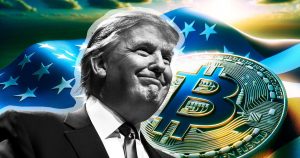Navigating the New Era: South Korea’s Strict Crypto Exchange Regulations

In the rapidly evolving landscape of cryptocurrency, South Korea has taken a bold step towards ensuring the safety and reliability of crypto exchanges operating within its borders. The Korean Financial Supervisory Service (FSS) has recently announced a new set of regulatory standards that crypto exchanges must meet to continue their operations. These regulations are not just a formality; they represent a significant pivot towards enhanced security, transparency, and accountability in the crypto world. Let’s delve into what this means for exchanges, investors, and the future of cryptocurrency in South Korea.
Understanding the New Regulations
The Essence of the New Policy
At the heart of South Korea’s new regulatory framework is the commitment to protect investors and maintain market integrity. The regulations introduce stringent requirements for operational security, data protection, and financial solvency.
Key Requirements for Compliance
- Enhanced security protocols for digital asset custody
- Mandatory user data protection measures
- Transparent financial reporting
- Adequate capital reserves to protect against market volatility
Implications for Crypto Exchanges
A New Benchmark for Security
These regulations set a new benchmark for what it means to be a secure and reliable crypto exchange. Exchanges now have to invest significantly in their security infrastructure and data protection capabilities to meet these standards.
The Road to Compliance
For many exchanges, this will mean a comprehensive overhaul of their systems and processes. Compliance is not optional; it’s a critical prerequisite for survival in the South Korean crypto market.
The Impact on Investors
A Safer Investment Environment
For investors, these regulations promise a safer, more secure environment for their digital asset investments. The emphasis on transparency and accountability is a welcome change in a market that has seen its share of volatility and uncertainty.
Building Trust in Crypto
By enforcing these regulations, South Korea is taking a significant step towards building trust in the cryptocurrency market. This move is expected to attract more investors, both domestic and international, to the Korean crypto space.
The Global Perspective
Setting a Global Example
South Korea’s stringent regulatory approach could serve as a model for other countries grappling with the challenges of regulating the crypto market. The balance between innovation and investor protection is a delicate one, and South Korea is navigating it with a forward-thinking strategy.
The Ripple Effect
The global crypto market is highly interconnected, and regulatory changes in one major market can have ripple effects across the globe. It will be interesting to observe how other nations respond to South Korea’s initiative.
Challenges and Opportunities
Adapting to Change
While the new regulations present clear benefits, they also pose challenges for exchanges that must adapt quickly to comply. This adaptation process will be a test of resilience and innovation for the crypto industry.
The Opportunity for Leadership
Exchanges that can navigate these regulatory waters successfully have the opportunity to emerge as leaders, setting standards for operational excellence and trustworthiness in the crypto world.
Conclusion
South Korea’s new crypto exchange regulations mark a significant moment in the maturation of the cryptocurrency market. As we move forward, the emphasis on security, transparency, and accountability will likely become the new norm, shaping the future of digital asset trading not just in South Korea but around the world. This proactive approach to regulation highlights the importance of balancing innovation with investor protection, setting a precedent for other nations to follow.
FAQs
- What are the main goals of South Korea’s new crypto regulations?
- To enhance security, protect investors, and ensure transparency and accountability in the crypto market.
- How will these regulations affect crypto exchanges?
- Exchanges must meet stringent security, data protection, and financial standards to operate, necessitating significant system and process overhauls.
- What benefits do these regulations offer to investors?
- They promise a safer, more secure investment environment with increased transparency and accountability from exchanges.
- Could these regulations influence global crypto regulatory approaches?
- Yes, South Korea’s approach could serve as a model for other countries, potentially influencing global regulatory standards.
- What challenges do these regulations pose for crypto exchanges?
- Adapting to the new requirements will be challenging and require substantial investment in security infrastructure and system upgrades.





